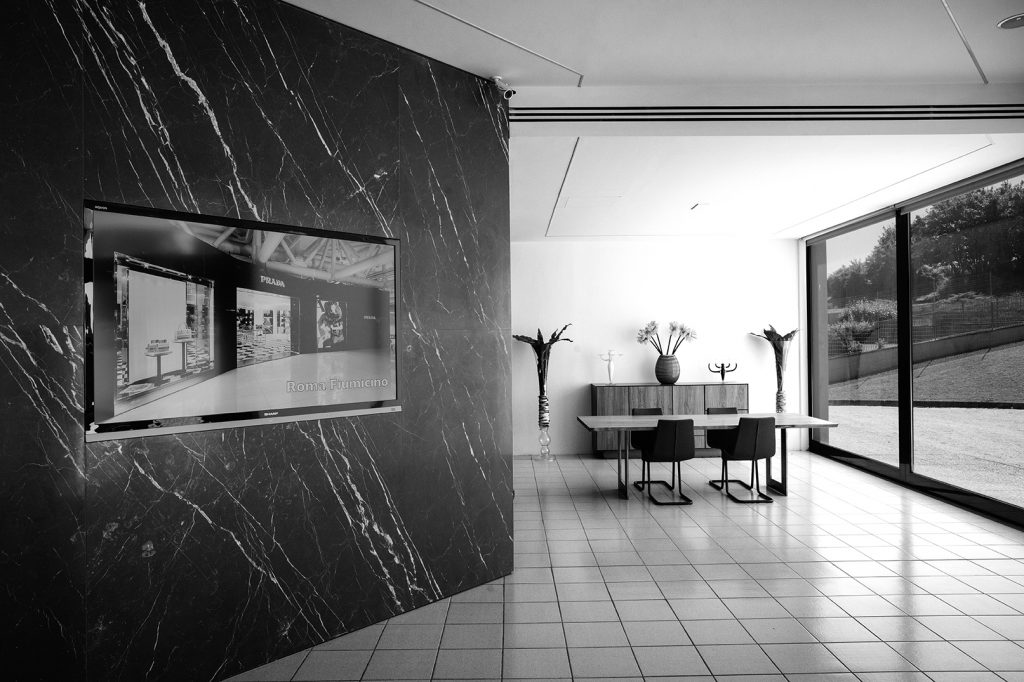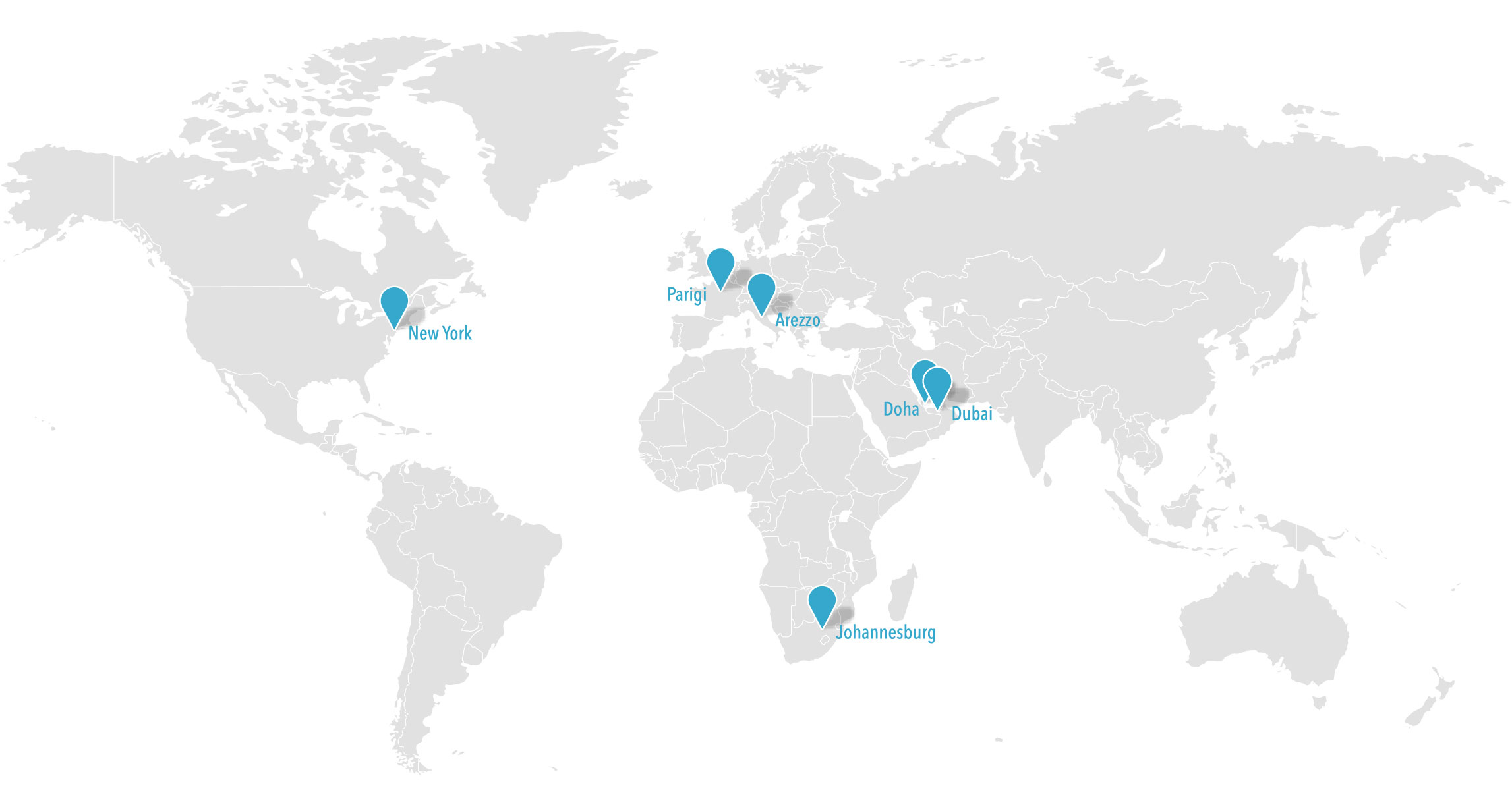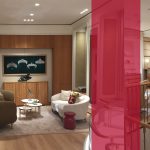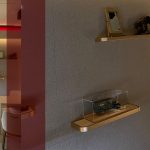Research, development and large projects in the luxury sector: the outlook for 2020
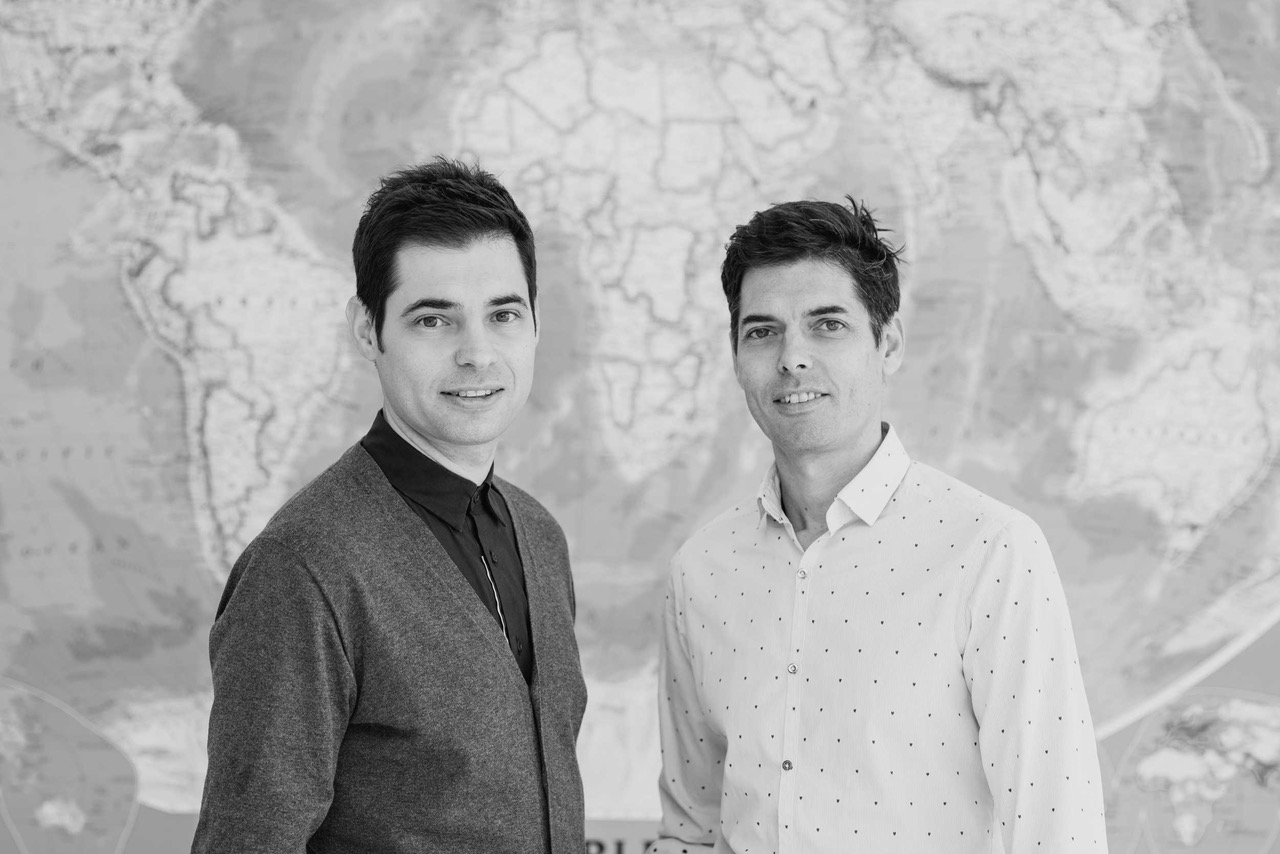
A broad-reaching interview with Andrea and Daniele Polverini, heads of Polverini, an Italian and global leader in the production, engineering and installation of furnishings for luxury stores and high-end fashion boutiques. An informal but insightful chat, looking back on the year just ended and considering what the future holds for the business in a sector that seems impervious to crisis and that continues to support the world of beauty, style and innovation.
Two successful men in their forties, Andrea and Daniele Polverini are also proof that – if properly channelled in an organisation capable of working on a global scale – Italian creativity remains unparalleled and offers a sure-fire route to success. Provided that it is combined with courage and the unwavering pursuit of perfection.
How was 2019 overall for the company?
2019 was a year for reflection. Following on from 2018, which saw us achieve truly remarkable results, 2019 was a year for development and research. We looked at how we can improve our services, while at the same time continuing to support our clients with increasing dedication and attention to detail.
Our key focus, however, was researching materials and techniques. We furthered our skills and knowledge of specific working methods, flows and materials. We produced an extensive set of mockups, created new samples and experimented with new combinations.
This process was prompted, in part, by the needs and requests of our clients, but it was also somewhat self-directed, and saw us further developing our preliminary proposals, engineering them as best as possible and seeking workable alternatives to preliminary plans. Having completed this process, we can now work with almost any material, from metals, including precious metals, to wood, fabrics, cement and construction materials, and wall finishes such as painting, hot wax painting, plaster techniques, wallpapers, and even plexiglass and various types of plastics.
What is it that makes major brands seek you out?
We’ve asked ourselves that same question many times. It makes us reflect on our work and the results achieved. We believe that there are various reasons, not least of which is that we are Italian. Like many Italian companies, we believe that we have skills that set us apart from most businesses in our industry. It also certainly helps that we are located in an area with a high concentration of businesses in the fashion industry. But, above all, we are versatile and organised, and this makes the difference. These two elements may seem mutually exclusive, but actually, when combined, they result in a service unlike most others: efficient, capable of adhering to a strict plan, but also able to effectively resolve the sorts of issues that can arise on complex projects such as those we work on.
How does a major brand choose you?
Our industry seems very large, but the number of operators is actually quite limited, due to the competitive dynamics. We often receive commissions through referrals, on the basis of past work and thanks to our ability to innovate and therefore generate novelty, capable of attracting and piquing the interest of fashion houses, which are always on the lookout for boldness and an eye for style.
You work all over the world and with many different brands. What’s more significant – the difference between one part of the world and another, or between one brand and another?
A bit of both. The most obvious differences are among brands. Each fashion house or luxury brand has its own way of doing things, its own expectations and quality standards, and these must always be taken into account, making each project different from the next. Then there are the differences between different parts of the world, meaning that we have to consider specific things such as timescales, standards and local laws. We need to be aware of all these factors and manage them in a way that ensures that bureaucracy and regulations don’t slow the project down or bring it to a halt. And so we need to know the culture, in the broad sense of the word, but also in terms of specific details. This is key in order to be able to plan the project and minimise the potential of any kind of unexpected event.
In this regard, the experience we have gained across the world means that we can now handle any type of commission, including as a general contractor. Often, we not only serve as a supplier, but also as a consultant, providing advice on matters outside of our specific field that we have gained knowledge of over time, through trial, error and, sometimes, success.
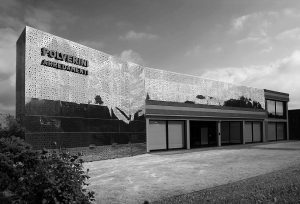
What are the main differences between the two markets you work in: fashion and jewellery?
Fashion and jewellery are your two main markets. How will they change over the coming years? The two industries are similar in certain ways, and very different in others. Fashion involves a sort of cyclical rotation, with top brands often trading places in boutiques. There is a strong belief in the role of stores as a means of consolidating status and driving trends. In jewellery, the trend is growth, growth that is perhaps less sudden than in fashion, but steadier. In both cases, however, our briefs are all-encompassing. We are usually asked to handle everything, including complementary services and broad-scale works. In both cases, the brands want a single point of contact, one company that can oversee everything, act as project manager and take on full responsibility for the job, coordinating and guiding the other teams involved in complex projects like boutiques. It’s much easier for them to have a single contact person and deal with a single company, because it streamlines everything and means someone is in charge. Of course that person has to prove that they are an expert and capable of grasping all the details of such elaborate, multi-faceted projects.
And so in your case it’s better to have broad-based skills, to be versatile rather than super-specialised?
We very much aim to serve as a general contractor, for the reasons outlined above. Brands are increasingly looking to delegate all aspects of a job to a single company, and this is why we have positioned ourselves in this way, to provide our clients with the turnkey solution they are looking for. Our company speaks the language of the fashion houses and major luxury brands, while at the same time having a mastery of the broad range of skills required to carry out a luxury store project. This is fundamental to serving as a coordinator and contact person for the client. We do, however, have a specialism, which we believe helps set us apart. Our background is in millwork, something which is still of benefit to our work. For major brands, if the millwork is excellent and the company shows absolute mastery of the work processes and materials, then the project will get the go-ahead and, if the company that handles the millwork is well-organised, it can coordinate everything else. This is the formula that has gotten us to where we are today.
And does this formula work all over the world?
It is particularly applicable in more complex parts of the world, such as the Middle East, Saudi Arabia and, to a lesser extent, Dubai. It’s relatively easy to work in Europe, whereas other parts of the world are much more complicated. We have become experts in working in these parts of the world, studying the local legislation, availing of teams that work year-round in these places and building up a solid track record of managing projects in these countries.
How do you go from being a furniture manufacturer to a business that primarily provides services and project management solutions in such a competitive industry as luxury?
My brother and I cut our teeth at Polverini Arredamenti, an established business. Joining a successful company with its own history is much easier than starting from scratch. Initially, we worked in production, woodworking and furnishings. A series of investments were made in technology and machinery when we joined the company, however, including acquiring our first numerical control machine, and this marked a turning point for the business. It gave us the opportunity to produce high-end furniture for brands, something that sparked the interest of one of Italy’s leading fashion houses, which has its headquarters not far from our premises. Following that collaboration, things started to grow quite quickly. We acquired commissions from other brands, mainly for standalone pieces of furniture initially, before moving on to engineering, producing and installing complete furnishing solutions for boutiques.
Being awarded such complex, demanding projects drove us to develop additional skills, including in design and logistics, an aspect that is often overlooked, but which is fundamental to working efficiently across the world. It wasn’t easy to build experience in this area, particularly at first, given that regulations are different everywhere, from Asia to the US, and because we had less people on our team than we do today, and many of us were just starting out. But our collaborators proved capable of growing with us and the business, and today they can work anywhere, guaranteeing extremely high standards and knowledge.
How many branches do you have today?
As well as our main premises in Arezzo, we have five other branches across the world. Let me start with Dubai and Doha, a key area for our industry. We have been working in Dubai for six years, with a well-established team that works all over the country from a dedicated factory providing services and producing high-end furniture and accessories. We opened our Doha branch just over two years ago, but with great results. It has allowed us to be responsive and effective. This is thanks to a network of specialists and professionals that enables us to continue to develop and make contact with prestigious brands with whom we are embarking on new and exciting collaborations. Then we have a branch in Johannesburg, which is very strategic for us as it gives us the opportunity to work on very interesting jobs in a way that is only possible if you have a team on the ground, allowing us to turn projects around very quickly. Then we have a New York branch, which plays a strategic role in the business, particularly as regards management, follow-up and coordination of jobs in North America, and finally, a sales office in Paris, established to provide comprehensive support to French brands that want a contact person on the ground.
Which markets are currently the most interesting?
Definitely the Middle East and North America, where most of our attention will be focused in 2020. It’s showing strong signs of growth, and we have past experience there having completed over 35 projects between 2016 and 2018.
As children, is this what you wanted to do when you grew up?
Daniele: I did, definitely. Perhaps I didn’t imagine that one day I’d be running a company of this size, but even as a child, I always saw myself in production, working with wood and furniture. I literally grew up in the business, and I always saw myself working here, just as my father did, and still does. My journey with the business and the experience I gained, first by learning the tricks of the trade and then by getting to grips with new, often subtle, business dynamics, allowed my brother and I to take the family business in a new direction, and put our own stamp on it.
Andrea: I took a longer route. After school, I really wanted to spend some time in America, which very much helped open my mind and gave me an insight into the number and sorts of opportunities available in the world. That year stood to me particularly after I joined the company. It gave me the opportunity to learn a language well but, above all, it introduced me to market dynamics that I would never have gotten to grips with if I had stayed in Italy. My nature definitely led me to take a different career path to my brother initially, but I also inherited our father’s passion for craftsmanship, and I am now confident that I have the skills to immediately identify work carried out to the highest standards.
How is your relationship with your father, who founded the business and built it up over the first few decades of its history?
Our father has contributed hugely to the success of our business, including in recent years. He had the ability and courage to take a leap of faith and delegate to someone who didn’t have his skills, but who had bold ideas. The space he gave us, and the freedom he gave to our ideas, were fundamental to taking the business in a new direction. When Andrea and I joined the company, 100% of the business turnover came from private clients. Our vision took us down a different route, however, first involving producing furniture accessories, and then towards the luxury sector, and high-end fashion in particular.
Our father put his trust in us, showing courage and great wisdom. Having seen what happens in other businesses, where there is often little space for new ideas, I can now see how farsighted our father was, trusting us without knowing where our vision would lead. It wasn’t easy for him to drastically overhaul the structure of the business, giving up a showroom to make space for design offices and sales and coordination offices. But he did it, knowing that we have to build our own future, rather than sitting around and waiting for it to happen.
What does 2020 hold for you?
Great satisfaction. As we said, 2019 was a year for consolidation and research, as well as professional growth and general restructuring, in light of new inputs and trends associated with the market and our key sectors. Now this work can start to pay off, and we feel ready to apply this experience in a market that will respond well to it. The Middle East and North America offer excellent opportunities that will come to fruition over the next few months, and the European market, where we will continue to grow, remains solid. We have a huge project lined up in the jewellery sector, in Doha, a very significant job that we are working on; in the US, meanwhile, we are competing for various jobs in the fashion sector, and the same in Europe. These early indications suggest that, in terms of figures, 2020 will be a year of further growth for the company, which could potentially even exceed our 2018 performance, our benchmark because it was our best year ever in terms of turnover.
